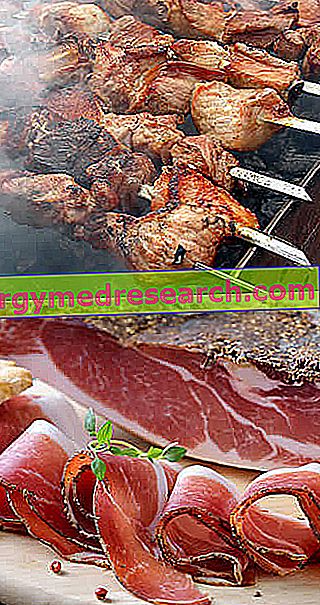The runner should be the first among all sportsmen, to follow the basic rules of the Mediterranean diet.

60-65% carbohydrates
20-25% fat
10-15% protein
The rules of Mediterranean cuisine are simple to follow as they enhance the typical products of our food tradition: olive oil, fresh fruit, legumes, whole grains, vegetables, fish and red wine.
Although the Mediterranean diet is, more or less rightly, the object of numerous criticisms, the principles it contains can represent a valid point of reference in the feeding of the runner. The energy substrates mainly used in endurance sports are fats and carbohydrates. Their percentage consumption depends on the intensity of the exercise (See: ENERGETIC METABOLISM IN THE MUSCLE WORK). The diet of the runner must therefore include a substantial intake of complex carbohydrates (or low glycemic index) and a good but not excessive intake of fat (mainly monounsaturated such as those contained in olive oil). Foods must be not very processed and as much as possible free of dyes and food preservatives in order not to induce excessive fatigue of the excretory organs (liver and kidney in particular). Pre-race or pre-workout meals should ensure maximum digestibility, which becomes necessary to avoid too much blood flow to the digestive tract during exercise (see: circulatory adaptations and sports).
In recent years the role of proteins has been greatly re-evaluated, not only because it has been shown that they can be used for energy purposes in particular conditions, but also and above all because they positively intervene in the recovery mechanisms (branched amino acids).
In light of the above, the caloric percentages of the different energy substrates must be (generally) adapted to the following values:
55-60% of carbohydrates
25-30% fat
15-20% protein
So the classic dish of Pasta with tomato sauce and olive oil with a few slices of ham or Grana Padano cheese is very welcome.
What supplements for a runner?
Given that, as reported by the WHO (World Health Organization):
A CORRECT AND VARIOUS DIET IN ITS COMPONENTS GUARANTEES A HEALTHY ORGANISM TO ACHIEVE AND MAINTAIN A STATE OF FULL PHYSICAL AND PSYCHIC EFFICIENCY
for most athletes the increased bioenergetic demands induced by training can be met simply by increasing the daily calorie intake.
It is therefore necessary to understand and study the organism's needs to recommend the SAFE use of NECESSARY SUBSTANCES. If, for example, the physicist of an international level marathon runner may need special food integration plans to cover the deficiencies of a diet that has to respond to too many compromises, the Sunday runner who follows a balanced diet certainly does not need any kind of food integration.
In particular conditions of psycho-physical stress caused by a training program that is too intense, supplements can be a valid help. In these cases the integration of the runner involves the use of different products according to the athlete's needs (multivitamins, vitamin C, iron and folic acid to improve blood parameters (see iron deficiency in the athlete), branched amino acids, bicarbonate and maltodextrin to improve energy reserves and optimize recovery).



